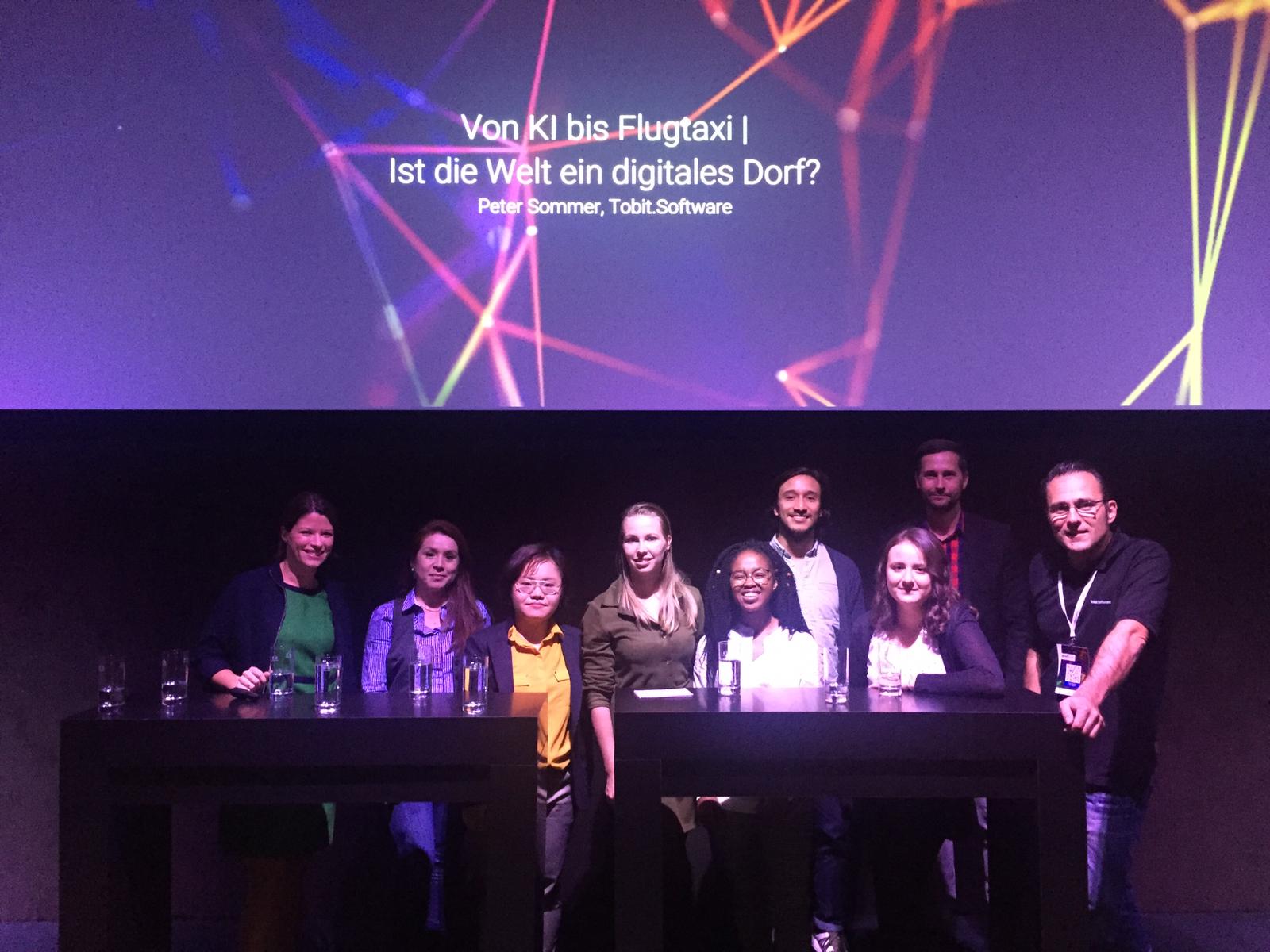20 September 2019 | Ahaus
The twelfth Push Conference was held at the Tobit.Campus in Ahaus, hosting partners and participants interested in discussing the topic of digitalisation. The Science-to-Business Research Centre was invited to lead a discussion on the different forms of digitalisation in different parts of the world. Dr Kerstin Kurzhals partnered with Tobit.Software to host the discussion, with the following question in mind: "From AI to a Flight Taxi | Is the world is a digital village?" The level of technological advancement and the acceptance of technology varies greatly from country to country, given the different levels of progression with technologies such as AI, airline taxis, autonomous vehicles and payment methods. The technical possibilities, on the other hand, are almost the same everywhere.

Peter Sommer, Marketing Manager at Tobit.Software, moderated the panel discussion on why we are not yet on a uniform state of the art worldwide. The speakers from the Science-to-Business Research Centre, Claudia Umanzor (Honduras), Eva Sormani (Netherlands), Maggie Chak (Hong Kong), José Miguel (Chile), Maria Paula Troutt (Colombia) and Mpho Letsoalo (South Africa) shared their knowledge about the different forms of digital technologies in their respective countries, the influence of culture on digitalisation, and compared this to the state of digitalisation in Germany. The invited audience learnt about the face recognition payment method in Hong Kong, the cashless and digital hotel in the Netherlands, the introduction of the digital factories in South Africa, and the vast similarities between Chile, Colombia and Germany in many traditional administration systems.
Some of the speakers discussed how stunned they were of the traditional cash payment method in Germany and the wide low adaption of digital technologies. Maria Paula informed us, "When I was an intern at a well-known German car company, I ironically experienced a fully automated production factory with an office that still uses a paper-based administration. I was completely astonished by this. In a country with such good economic development, one would think that Germany would be leaps and bounds ahead of the developing world, but that is not the case."

The discussion ended with fruit for thought for everyone in the room. While the rest of the world is sharing data on public platforms and phone applications, Germany's progression with digitalisation has low chances to increase given the societal lack of trust in sharing information and preserving traditional modes and methods. Institutions such as Tobit.Software are continuously experimenting and introducing the culture of a digital world and a digital economy around Germany.


